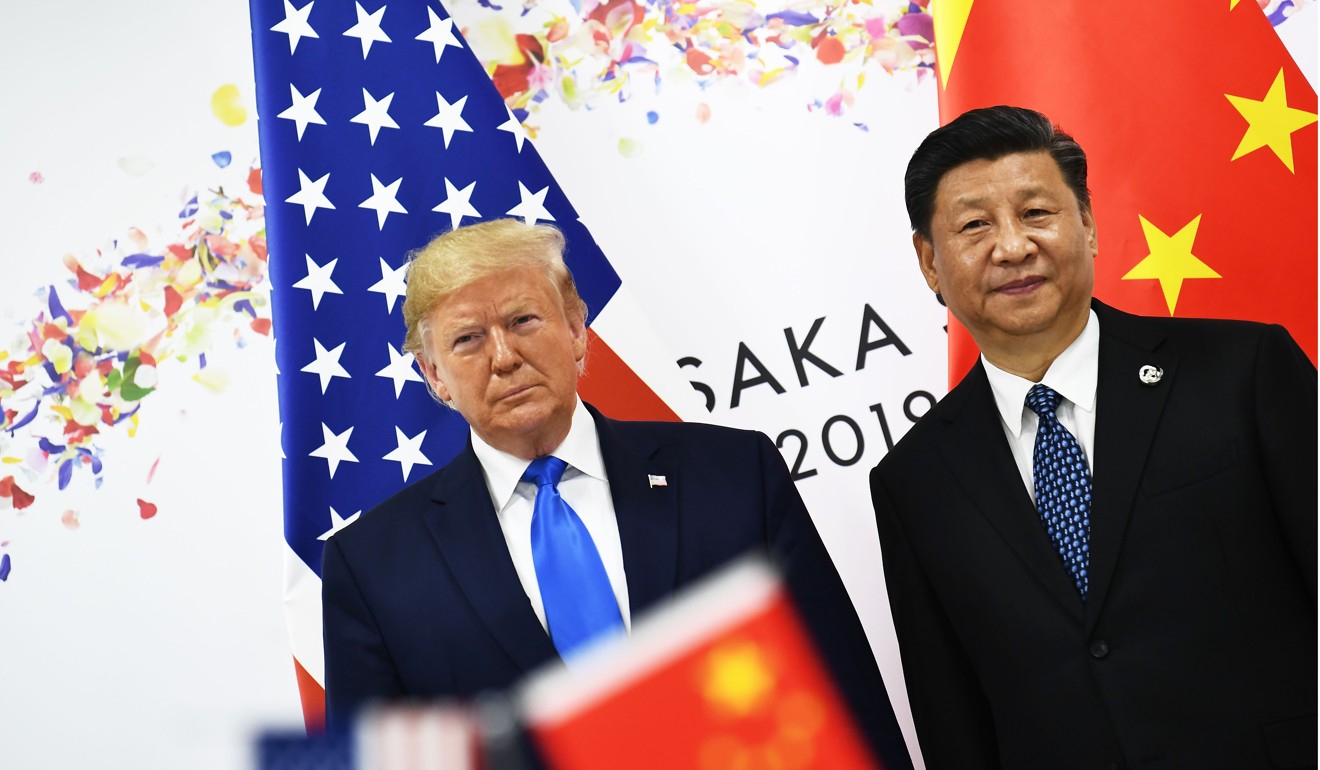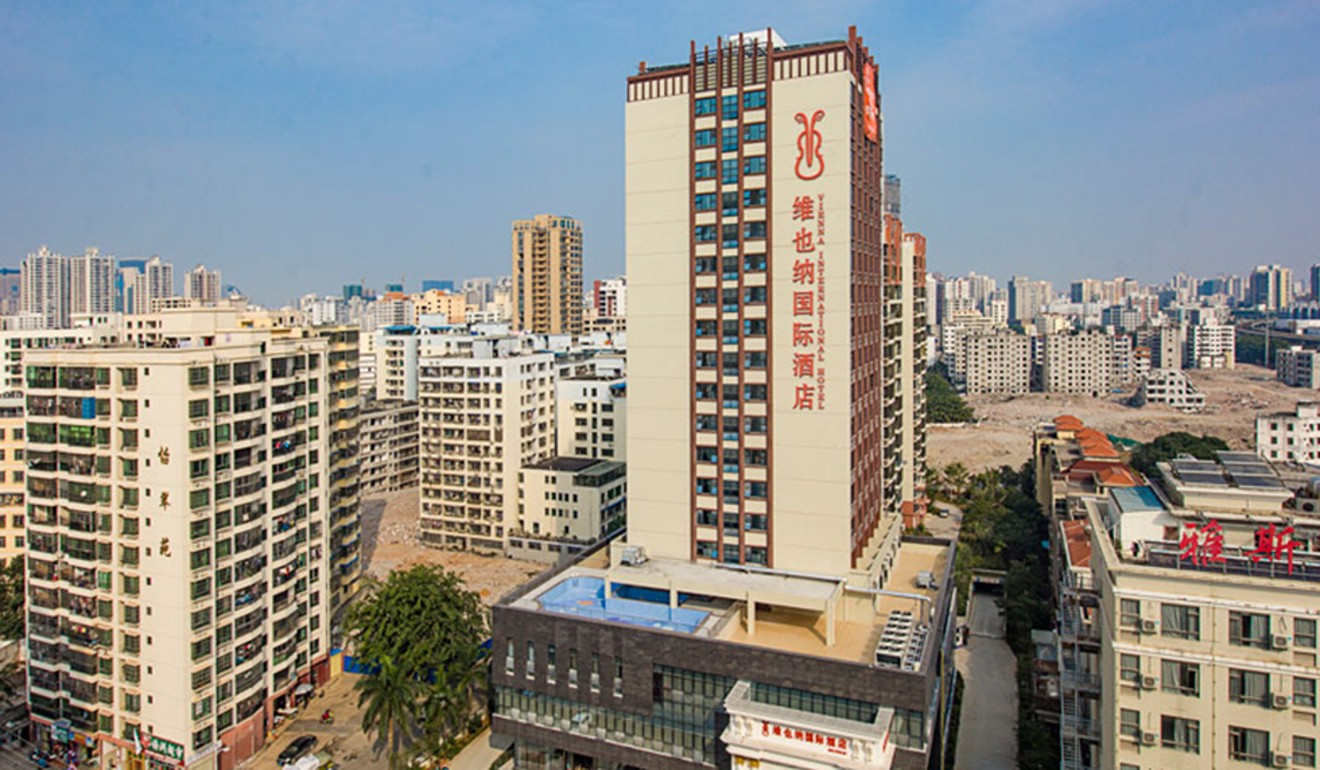
US-China trade war: hardliners in Beijing are gaining influence
- Chinese urging concessions for Washington have been attacked by the media
- Businesses and residential complexes are being forced to change foreign-sounding names, and the war film The Eight Hundred has been cancelled

Ever since the trade war between Beijing and Washington started more than a year ago, China’s state media has performed contortionist acts in trying to build up a narrative.
For much of the year, the official media outlets focused on playing up the potential fallout of the escalating conflict on the US economy while remaining silent on its potentially bigger negative impact on the Chinese economy, giving rise to jokes that Chinese officials seemed to be more concerned about the Americans than their own people.
But since mid-May, when the trade talks collapsed with both sides blaming each other and further hiking import tariffs on each other’s goods, the state media has suddenly started to go all out in turning up the heat.
Commentaries have accused Washington of imposing extreme pressure on Beijing and vowed that the Chinese people will never cave in to its unreasonable demands, citing China’s historical humiliations at the hands of colonial occupiers. Playing the nationalist card has always been the Chinese government’s favourite weapon on occasions like this, and the movie channel of China Central Television has even started to air re-runs of anti-American movies set during the Korean war.

More interestingly, in the immediate run-up to the summit on June 29 between Chinese President Xi Jinping and his American counterpart Donald Trump, which resulted in a much-needed truce on the trade war, leading state media organisations including the People’s Daily, Xinhua, and Guangming Daily suddenly focused their wrath on what they said was “a tiny group” of Chinese people who had urged the government to make concessions to the United States to end the trade war.
In one week alone last month, the People’s Daily ran sharply worded commentaries on its websites six days in a row accusing the unnamed group of being unpatriotic and spreading malicious and misleading statements about China’s decision to take on the US in the trade war.
In a commentary by Xinhua Daily Telegraph, the people urging compromise with the US were likened to soldiers throwing grenades behind themselves in battle. The commentaries blasted these people for having a weak spine, saying they either feared or worshipped the US.
The sudden outburst on official media is noteworthy. Among other things, it signals the rise of the hardliners within the Chinese authorities, helped by the on-again, off-again trade negotiations between the world’s two largest economies and wilful unpredictability from Trump’s White House, which is now dominated by China hawks.
Interestingly, the official media’s blasting of Chinese who either fear or worship the US came as the Chinese authorities stepped up efforts to force businesses and residential complexes to change their foreign-sounding names.
Over the past few decades, developers have relished naming office buildings and residential properties after American places such as California, Manhattan, or Hawaii, hoping this will bestow an air of class and affluence and appeal to the middle class. It is not uncommon for a typical Chinese city to have several office buildings and residential complexes with “Manhattan” in the name.
Last year, Chinese authorities issued a document requiring cities across the country to review and rectify property names that were foreign, feudal, or strange. But local authorities dragged their feet until the June deadline, when many cities suddenly issued administrative orders to remove the names. This has caused widespread dismay among businesses and residents as the names of their properties are often linked with their household registration (hukou) or their property ownership and changing the names will be troublesome, to say the least.
Moreover, some businesses – including the Hainan-based Vienna Hotel Group, a hotel chain – have registered their names as trademarks. The controversy has heightened concerns that amid the trade war with the US, the Chinese government may intend to strengthen ideological controls by beating the drum against “blind worship of foreign goods and ideas”.

In the past, whenever conservatism reared its head, fighting the worship of everything foreign was always the most convenient excuse.
Since Xi came to power late 2012, he has promoted his “four confidences” doctrine, in which officials and ordinary people alike are urged to be “confident in China’s path, political system, guiding theories and culture”.
While the government has every right to promote that doctrine, it needs to strike a balance with the need to stay open and learn from foreign experiences and ideas.
This is particularly true at a time when Xi and other Chinese leaders have repeatedly tried to assure the international community that China will stay on the course of reform and opening up.
In fact, the Chinese government can strengthen its four confidences by being more inclusive, tolerant of different ideas and values, and open to criticism.
Unfortunately, the opposite seems to be happening. Another example is the widespread dismay about the government censors’ decision to cancel a war film last month, just days after it was pulled from the Shanghai Film Festival. Touted as a Chinese version of Dunkirk, the World War II epic The Eight Hundred told the moving and heroic story of the Chinese Nationalist soldiers who defended a warehouse against the Japanese army in Shanghai.
No official reason was given for the cancellation but according to comments on social media, the censors may have objected to the film glorifying the heroism of the Nationalist army soldiers and the prominent display of the Nationalist flag in the film.
Perhaps a more important reason was that the film ran contrary to the Chinese Communist Party’s own version of history, in which it was the Communist forces – not the Nationalist ones – that played the major role in defeating the Japanese army. The party’s version of events is greatly disputed by historians and is increasingly challenged by residents in the Chinese mainland.
Some film critics speculated the film was pulled partly because this October marks the 70th anniversary of the founding of the People’s Republic and showing a film that praises the rival nationalist forces would be deemed inappropriate.
Whatever the reasons, the decision to pull the film is very narrow-minded and counterproductive. The war against the Japanese invasion was an epic endeavour by the whole Chinese nation, irrespective of their political affiliations. Allowing the film to be shown could have provided a definite sign of the confidence the Chinese leaders have been preaching about.
Wang Xiangwei is the former editor-in-chief of the South China Morning Post. He is now based in Beijing as editorial adviser to the paper